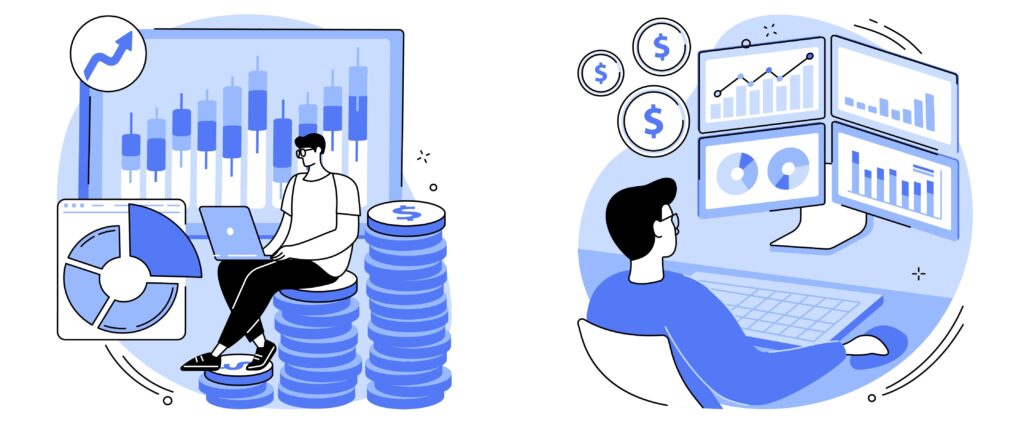Menu
Welcome to the dynamic world of Forex trading! The foreign exchange market, commonly known as Forex or FX, is the largest and most liquid financial market globally, with a daily trading volume exceeding $6 trillion. This market operates continuously, 24 hours a day, five days a week, across major financial hubs such as London, New York, Tokyo, and Sydney, enabling seamless trading at any hour.

Forex trading, or foreign exchange trading, involves the buying and selling of currencies on the foreign exchange market. This global marketplace operates 24 hours a day, five days a week, making it one of the most accessible and liquid financial markets in the world.
Currencies are traded in pairs, such as EUR/USD (Euro/US Dollar) or GBP/JPY (British Pound/Japanese Yen).
Base Currency The first currency in the pair, which you are buying or selling.
Quote Currency The second currency in the pair, which you use to buy or sell the base currency.
The price of the pair indicates how much of the quote currency is needed to purchase one unit of the base currency. For example, if EUR/USD is 1.2000, it means 1 Euro costs 1.20 US Dollars.
The Forex market is decentralized, meaning there is no central exchange. Trading is conducted over-the-counter (OTC) through a network of banks, brokers, and financial institutions.
Major financial centers include London, New York, Tokyo, and Sydney. The market’s continuous operation across these centers allows for 24-hour trading.
Traders aim to profit from the fluctuations in currency prices. By analyzing economic data, market trends, and geopolitical events, traders make informed decisions about buying or selling currency pairs.
Speculative trading relies heavily on technical analysis (chart patterns, indicators) and fundamental analysis (economic indicators, news events).
Businesses and investors use Forex trading to manage and mitigate currency risk. For example, a company with international operations might use Forex trading to hedge against adverse currency movements that could impact their profits.
GDP Growth: A strong economy typically strengthens the national currency.
Employment Figures: High employment rates indicate a healthy economy and can boost currency value.
Inflation Rates: Moderate inflation is generally positive, but hyperinflation can devalue a currency.
Retail Sales, Industrial Production, etc.: Reflect overall economic health and consumer confidence.
Central banks, such as the Federal Reserve (Fed) or the European Central Bank (ECB), set interest rates.
Higher interest rates attract foreign investment, increasing demand for the currency and potentially raising its value.
Lower interest rates can have the opposite effect, reducing investment and weakening the currency.
Political stability, elections, policy changes, and international conflicts can significantly impact market sentiment.
Positive political developments can strengthen a currency, while instability or conflict can lead to depreciation.